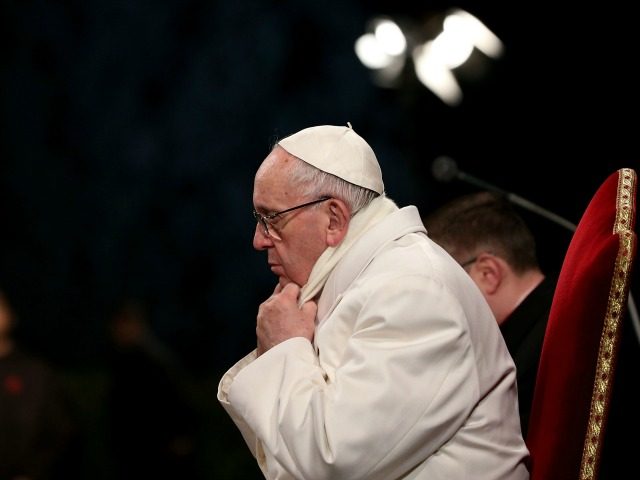In a surprise visit Sunday to Rome’s Villa Borghese park for a celebration of Italy’s Earth Day, Pope Francis delivered an impromptu message, telling his audience to go through the world turning deserts into forests.
Francis quickly tossed aside his prepared remarks to speak off the cuff to the crowd that had assembled for the celebration. He congratulated the environmentalists for their commitment, saying that the desert represents death while the forest stands for life.
There are many “deserts” in the cities, and in people who live without a future, Francis said, because of prejudices and fears. “These people live and die in the desert of the cities,” he said.
The Pope said that every conflict involves both risk and opportunity, and that too many people look the other way in order not to avoid conflict.
“Conflict has to be faced, evils have to be faced, in order to resolve them,” he said.
“We must not be afraid to go to the desert to transform it into a forest, where there’s exuberant life,” he said.
As he has done on other occasions, Francis spoke of the need to put the human person at the center of society and the center of the economy. He said that people need more “gratuitousness” in a world “where it seems that if you don’t pay you can’t live,” and where “the person, the man and woman that God created to be the center of the world and the center of the economy, are instead driven out and we have at the center a god, the god of money.”
“Today at the center of the world is the god of money, and those who can come forward to adore this god do so, and those who can’t end up in hunger, in illness, in exploitation,” he said.
The Pope also said that people’s common humanity is the source of being able to work together for peace. “But I belong to this religion, or to that one …” it doesn’t matter!” he said.
“Let’s all go forward to work together, respecting each other, respecting! I see this miracle: the miracle of a desert that becomes a forest.”
Meanwhile, other scholars have cast their gaze back to the origins of Earth Day in 1970, cautioning restraint and urging a healthy skepticism of climate change panic.
Last week, University of Michigan professor of economics Mark J. Perry penned an essay enumerating “18 spectacularly wrong predictions” made around the time of the first Earth Day in 1970.
At the time, Harvard biologist George Wald estimated that civilization would end “within 15 or 30 years unless immediate action is taken against problems facing mankind” while Paul Ehrlich warned that population would “inevitably and completely outstrip whatever small increases in food supplies we make,” and that therefore the death rate would increase “until at least 100-200 million people per year will be starving to death during the next ten years.”
Harrison Brown, a scientist at the National Academy of Sciences, said that humanity would totally run out of copper shortly after 2000, and that lead, zinc, tin, gold, and silver would be gone before 1990.
Ecologist Kenneth Watt told Time that, at “the present rate of nitrogen buildup, it’s only a matter of time before light will be filtered out of the atmosphere and none of our land will be usable.” Watt also declared, that by the year 2000, “there won’t be any more crude oil” and forecast an imminent ice age.
“The world has been chilling sharply for about twenty years,” he declared.
“If present trends continue, the world will be about four degrees colder for the global mean temperature in 1990, but eleven degrees colder in the year 2000. This is about twice what it would take to put us into an ice age,” he said.
Follow Thomas D. Williams on Twitter Follow @tdwilliamsrome

COMMENTS
Please let us know if you're having issues with commenting.